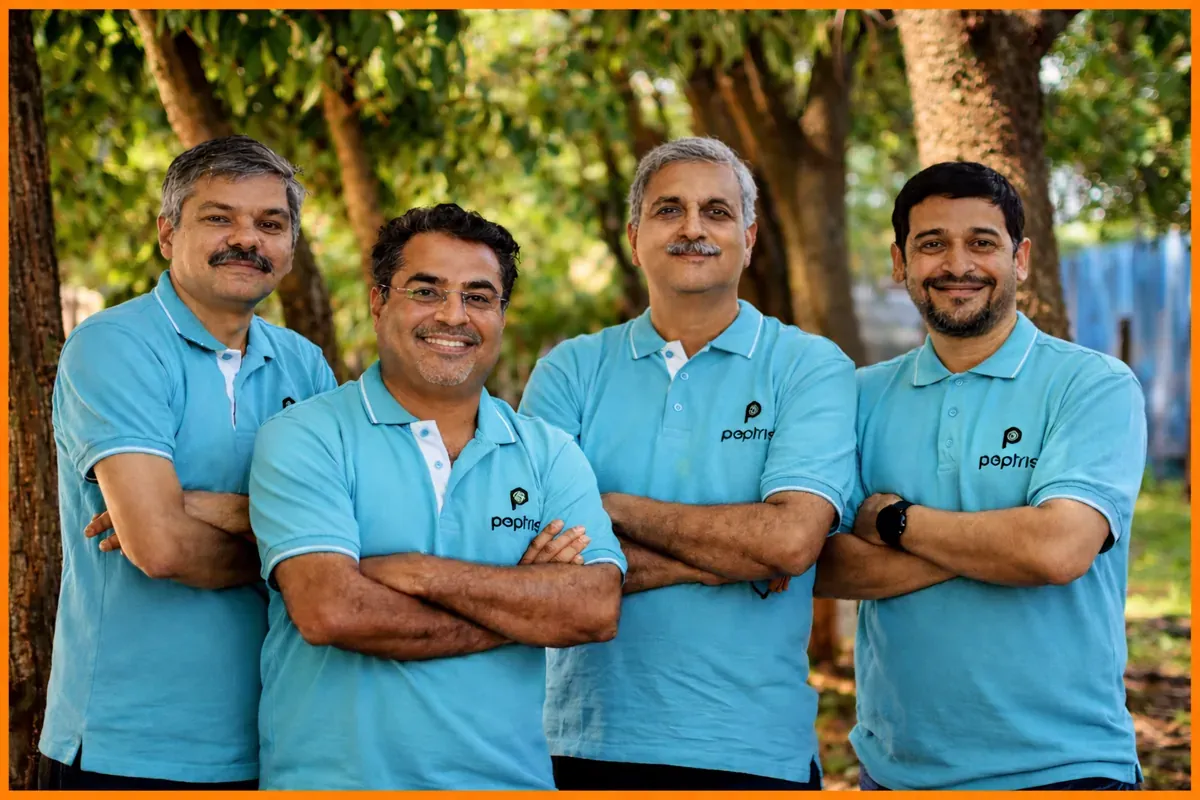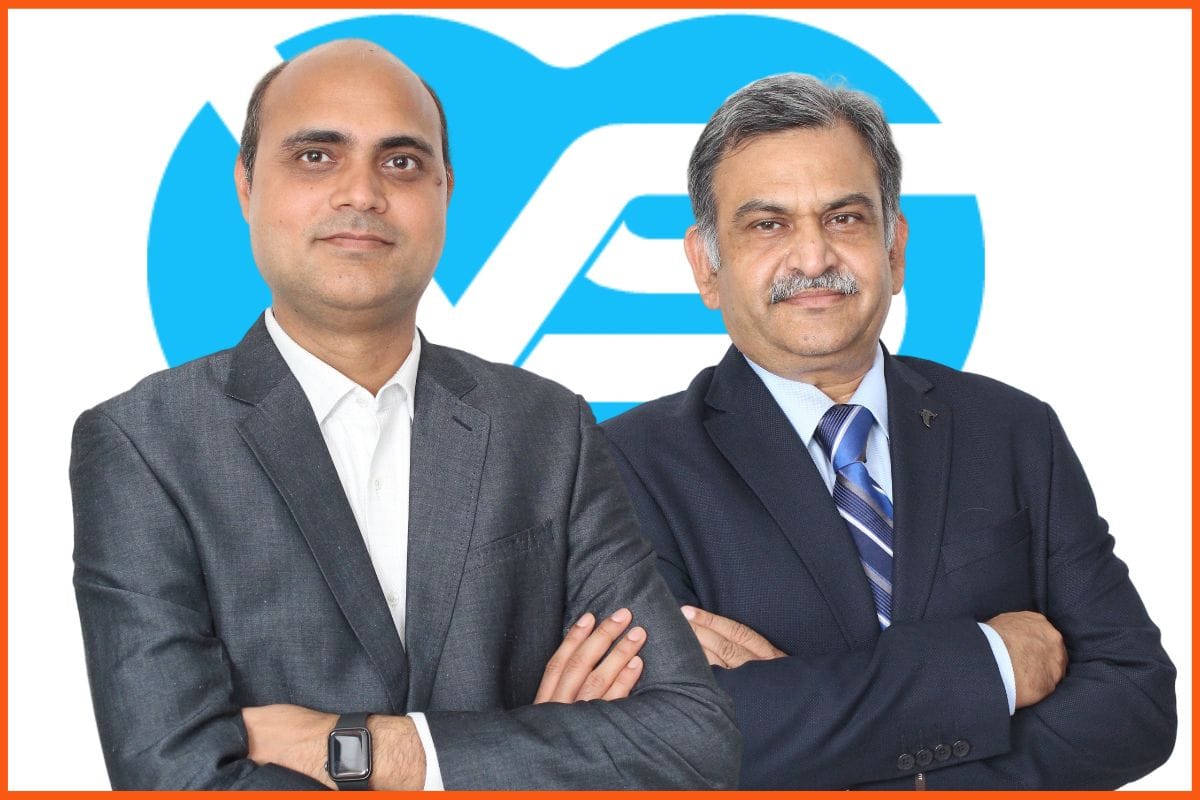Lenskart Business Model | How Lenskart Makes Money
🔍Insights
Approximately 64 percent of adults around the world need corrective lenses to see clearly, according to recent studies. Envisioning a society where selecting the ideal eyewear is both a vital must and a truly enjoyable activity. This ambition has come true thanks to Lenskart, an industry pioneer.
Both customers' perception of eyeglasses and their shopping habits have been revolutionized by Lenskart's groundbreaking business model, which combines cost, convenience, and style. Its business model is what makes the company different from others, as it bridges the gap between different touchpoints, i.e. it gives the customer an Omni Channel Experience where a customer can order either from the store or from an online medium.
Lenskart is one of the eCommerce companies that operate in both online and offline distribution channels. Customers can order their products over the online portal or from Lenskart's uniquely designed offline store. Lenskart also becomes a unicorn company in the year 2019.
Lenskart is the fastest-growing retail chain with 500+ profitable stores across 120+ cities and 50 Lac happy customers across India. Valyoo Technologies is the parent company under which it is registered. Lenskart app is the No.1 shopping app for eyewear as it has the widest collection of specs, sunglasses, goggles, frames, anti-glare, contact lenses, reading glasses, computer glasses, try glasses at home, prescription sunglasses, and eye accessories.
Lenskart is a novel business strategy that combines technology with fashion, and we urge you to explore this intriguing world with us in this post.
About Lenskart
Lenskart Business Model
How Lenskart Makes Money?
Lenskart USP
Lenskart SWOT Analysis
The Omni Channel Method
Growth Drivers for Lenskart
Features of Lenskart
Competitive Analysis of Lenskart
Challenges and Future Growth Opportunities
About Lenskart
The founder and CEO of Valyoo Technologies (the parent company of Lenskart) is Peyush Bansal. He pursued his Bachelor in Electrical Engineering - IT, Control & Automation from McGill University, Canada in 2006. Before he returned to India to pursue a PG in Management from IIM, Bangalore, Peyush worked as a Program Manager with Microsoft for a year.
Peyush launched his company Valyoo Technologies with SearchMyCampus as the first business portal in 2007. It was a classified site for students that provided options for accommodation, books, part-time jobs, carpool facilities, and internship opportunities. When that became a big hit, Peyush wanted to explore the eCommerce world. While exploring opportunities, the eyewear segment caught his eye and inspired him to come up with his own.
This led to the creation of Flyrr.com, a website that focused on the eyewear market in the US. Flyrr went on to gain good traction and this prompted him to test the waters in the Indian markets and launch Lenskart in November 2010.
Lenskart was founded by Sumeet Kapahi, Peyush Bansal, and Amit Chaudhary with a singular goal in mind: to ensure that everyone could afford and have access to eyeglasses.
The creators noticed that purchasing eyeglasses in India might be a hassle and a drain on budget due to the prevalence of offline businesses selling a restricted selection of frames at high prices.
Lenskart, an online marketplace offering a diverse selection of eyewear at affordable rates, was created to tackle these challenges. Company operations are distributed all over India, although the headquarters are in Gurugram.

Lenskart Business Model

Lenskart has partnered with some major names in the eyewear business. Working with manufacturers, it has sourced reasonably priced, high-quality frames and lenses. The business has also collaborated with lens makers to create its lenses, which it markets under its label.
Lenskart has also collaborated with digital companies to make online buying easy for their clients. It has teamed up with traditional retailers to broaden its consumer base and provide in-store customization options. The company's main source of income comes from the selling of its products and several subscription plans.
Lenskart offers over 5000 frames and glasses and more than 45 different kinds of high-quality lenses. The company follows an inventory-led business model wherein equal sourcing is done from India and China. Lenskart has a team of designers and stylists that keep a tab on the latest trends in the eyewear department, the designs made by the team are then passed down to the manufacturers.
To reach the masses, they have also ventured into offline stores through the franchise model. Lenskart currently has over 2500 omnichannel stores across 175 cities in India, Singapore, and Dubai. They have balanced the reach by spreading out across metro and non-metro locations and are currently serving more than 4000 people in a day and looking at scaling it up to 200,000 people in the coming years.
4 success factors in this industry are the quality of the product, the product portfolio, the delivery time, and lastly the sales service. Lenskart has a good value proposition that provides high-quality products at an affordable price. They also have a team of 1000+ employees who operate on manufacturing, eye technicians, custom service, technology, and logistics which further expand as the growing demands.

How Lenskart Makes Money?
The revenue model of Lenskart encompasses multiple revenue streams to earn revenue. The sale of eyewear products, such as frames, lenses, sunglasses, and contact lenses, constitutes the company's principal source of revenue. The company offers a diverse selection of items, making it suitable for customers of varying ages and requirements.
Glasses accounted for the bulk of Lenskart's income, making nearly 95% of its total. Compared to the fiscal year of 2023, when it was INR 1,618.3 Cr, Lenskart's total revenue, including other income, was INR 3,927.9 Cr, an increase of 142.7%. Fees for training, services, and in-home vision tests are some of the other ways the business makes money.
The subscription-based services that Lenskart offers are another source of revenue for the company. Lenskart Gold is a subscription program that offers users exclusive perks, such as free eye tests, free home eye check-ups, and savings on eyewear items.
Additional accessories and add-ons: Lenskart also provides additional accessories such as eyeglass cases, cleaning solutions, and lens wipes, in addition to further add-ons such as coatings that are scratch-resistant and anti-glare.
Fees for franchises: The company generates revenue by collecting franchise fees from optical retailers that are partners with it.
The business model of Lenskart is a business-to-consumer (B2C) approach, which is centered on sales. Direct sales of the company's products to end users at affordable prices are made by the business. In addition to that, the organization places a strong emphasis on the most up-to-date fashions and trends, as well as durability and flawless quality. Their robotic technology comes from Germany and is imported from there. Because of this cutting-edge technology, Lenskart is the only company that is capable of producing eyewear that is accurate to within three decimal places and performs efficiently. The incorporation of these innovations into Lenskart's business cycle enables the company to offer a product that is not only one-of-a-kind but also technologically advanced. Lenskart's products distributorship primarily involves a franchise network, where franchisees manage physical stores and promote the brand to local customers. As a result, increasing the amount of revenue generated through the sale of these articles.
Lenskart Financials FY24
| Lenskart Financials | FY23 | FY24 |
|---|---|---|
| Operating Revenue | INR 3788 crore | INR 5428 crore |
| Total Expenses | INR 4025 crore | INR 5550 crore |
| Profit/Loss | INR -63 crore | INR -10 crore |
Lenskart's financials show significant improvement from FY23 to FY24. Lenskart's operating revenue grew by 43%, increasing from INR 3,788 crore to INR 5,428 crore. Total expenses also rose by 38%, from INR 4,025 crore IN FY23 to INR 5,549.5 crore in FY24. Although Lenskart still recorded a loss, the loss amount was reduced by 84%, from INR 63 crore in FY23 to INR 10 crore in FY24.

Lenskart USP
- Suitability: Lenskart provides its clients with a shopping experience that is both convenient and easy. In addition to in-store and online shopping, customers can use the company's website to schedule in-home eye exams. Customers may easily get the glasses they need without leaving the comfort of their homes.
- Customization Lenskart provides its consumers with the opportunity to create their own unique buying experience. Customers can view how various frames will appear on their faces with the company's virtual try-on tool on the internet. Lenskart also features in-store optometrists who are qualified to assist clients in selecting the ideal eyewear.
- Excellence: Lenskart provides customers with long-lasting items that are crafted from top-notch materials. Customers have 14 days from the date of purchase to return an unsatisfactory item, according to the company's generous return policy.
Lenskart SWOT Analysis

Lenskart Strengths
- With its integrated model, Lenskart manages every step of its supply chain, from raw materials to finished products. Because of this, they can manage their inventory more efficiently, ensure faster delivery, and monitor quality.
- Lenskart uses a hybrid retail strategy combining online and offline stores to serve a diverse consumer base. Physical stores provide instant service, credibility, and the ability to touch and feel products, while online platforms offer convenience.
- In terms of technological innovation, the firm has always been ahead of the curve when it comes to improving the client service they provide. One thing that sets them different from other eyeglass stores is their virtual 3D try-on technology.
- Branding and marketing efforts by Lenskart have been highly visible, elevating the company to the forefront of India's eyewear industry.
- Trust and customer happiness have always been Lenskart's top priorities, which is why the company offers easy returns and product guarantees.
Lenskart Weakness
- Although it has many advantages, the hybrid model of brick-and-mortar and Internet shops can create certain operational challenges. It can be difficult to manage logistics, and inventory, and maintain a consistent brand experience on both platforms.
- Like many eCommerce platforms, Lenskart frequently uses sales and promotions to entice customers. This may lead to a decline in profit margins and establish a discount-focused expectation among customers.
- Eyewear is a highly competitive industry, and this is true both online and offline. Potentially troublesome are competing brands, particularly long-standing global ones.
Lenskart Opportunities
- The rising purchasing power of middle-class consumers and the general public's focus on eye health point to a promising future for the eyewear industry in countries like India.
- With the continued growth of internet access, particularly in emerging nations, the pool of potential customers for online eyeglass purchases is growing.
- Expanding into adjacent product categories, such as high-end eyewear, specialized sports eyewear, or smart eyewear, could open up fresh avenues for expansion and revenue generation.
- There is a substantial opportunity in smaller cities and villages, where the penetration of branded eyewear is lower than in metropolitan areas.
Lenskart Threats
- Problems may arise if the governments of the countries where Lenskart does business were to alter their policies regarding online sales, imports, or exports.
- The dynamics of the eyewear market or the viability of specific services could be altered by introducing new, possibly disruptive technologies due to the rapid pace of technological innovation.
- Natural catastrophes, pandemics, or geopolitical conflicts are just a few examples of the kinds of disruptions that can affect the supply chain and cause problems with inventories or delays in deliveries.
- The eyeglasses market is vulnerable to fake goods. Lenskart must consistently check the things it sells for authenticity if it wants to keep its reputation intact.
The Omni Channel Method
Lenskart started as an online business, but when they understood that Indian customers prefer to touch and feel the product before buying a high-involvement product, this is when they shifted to the Omni Strategy. It was important for them to leverage technology to actively engage their customers and adapt to the ever-changing consumer expectations.
With this strategy, the company focuses on delivering the right product, at the right time and the right place. For Lenskart, customer engagement is more important as they help their customers get a shopping experience tailored to their preferences. Lenskart is trying to keep itself close to the customers and increase trust by providing a value proposition.
Lenkart is known to give bundled offers like buying two at the cost of one or cross offers like giving the first frame for free, real-time offers, personalized recommendations, email coupons, etc. Lenskart has expanded to various cities which are based on the franchise business model in which 35% of all revenue is shared with the franchisee and an annual fee of INR 2 lakhs.
Growth Drivers for Lenskart
- “The first frame is free” offer - Where the customers will pay for only the lens on their first purchase. A good strategy to attract first-time buyers.
- “Try at home” –Where the customers can choose a maximum of 5 frames and try them at home before making a final purchase. This has led to more sampling by customers.
- Eye checkups by optometrists at home across cities have been introduced.
- Innovative use of technology – Developed a 3D facial visualizer where customers can see how the frames will look on them.
Features of Lenskart
The main features of Lenskart making it a popular eyewear brand are:
- Infinite variations and models of Eyewear
- Find a frame that suits your style
- Latest collection with fashionable trends
- 3D Try On
- Replace Old Eyeglasses
- Book an Eye checkup at your own home
- Shop from a range of 100% authentic brands
- Order online and pay cash on delivery
- Scan product barcodes with the camera
- Live chat with the customer support team

Competitive Analysis of Lenskart
Lenskart's competitors include both online and offline players. Even traditional retailers who specialize in eyewear are the competitors of Lenskart. Competition is heating up in this space with players like GKB, Lawrence and Mayo, Titan Eye Plus, Bausch and Lomb, Vision Express, Specsmakers, Coolwinks, Deals4Opticals. Some manufacturers like Ray-Ban, Essilor have their own online stores.
Lenskart faces competition from eCommerce marketplaces like Amazon, Flipkart, Paytm Mall, and Snapdeal which sell eyewear and impact its business directly. With a market size of Rs. 18000-20000 crore, organized players account for barely 9-10% of the market. The brands compete with a vast variety of low-priced products available offline and online so the challenge is to steer customers away from local opticians and keep them loyal.
Challenges and Future Growth Opportunities
Lenskart has experienced rapid growth, but it faces several challenges along the way. One of the primary obstacles is the intense competition from both other eyewear brands and online platforms, which makes it challenging to stand out in a crowded market. Additionally, Lenskart must ensure that its customer service remains consistent across both online and offline channels, which can be difficult to manage effectively. Scaling operations in smaller towns presents another challenge, as the purchasing power and demand for premium eyewear may be lower compared to metropolitan areas.
Despite these challenges, Lenskart also has substantial growth opportunities ahead. As more Indians become aware of the importance of eye health and opt for stylish eyewear, there is a growing market for quality products. The increasing demand for blue light-blocking glasses, driven by the rise in screen time, and the expanding middle-class population, create significant potential for continued growth and expansion within the industry.
Conclusion
Lenskart, whose slogan is "Our mission is to give India a Vision," is among India's most successful unicorn corporations. In the years to come, the eyewear brand plans to offer the greatest eye care solutions and use its low-cost franchise model to reach a variety of people. For aspiring entrepreneurs looking to make an impact in the eyewear sector, Lenskart offers a business strategy that provides updated solutions. Lenskart through its defined business model gives a clear message to youngsters that customer experience, integration, the Omni channel model, and product technology should be their primary areas of concentration if they want to achieve success.
FAQs
What is business model of Lenskart?
Lenskart has a B2C business model which is highly sales-oriented. They sell their product directly to customers at an affordable price. They have a wide variety of frames within a price range of Rs.345 to Rs.30,000 and also the first frame you buy is absolutely free.
Is Lenskart a Chinese company?
No, Lenskart is not a Chinese company. Lenskart is an Indian retail chain for spectacles having factories in China as well which manufactures about 50% of the production.
What are Lenskart features?
Lenskart offers a wide range of eyewear with over 5000 frames and 45+ lens types, featuring virtual try-on technology for a personalized shopping experience. The company combines online shopping with 1500+ physical stores to provide an omnichannel experience. Customers can customize their eyewear, access subscription plans for lens replacements, and enjoy hassle-free returns. Lenskart also offers home eye checkups and maintains affordable pricing with regular discounts, making quality eyewear accessible and convenient.
What is the USP of Lenskart?
Lenskart's USP is its wide range of stylish, affordable eyewear, enhanced by virtual 3D try-on technology and a hybrid retail model combining online and offline stores.
How is Lenskart so cheap?
Since Lenskart is a B2C company, there are no intermediaries involved to eat their revenue.
How does Lenskart make money?
Since no intermediaries are involved between buyer and seller so whatever revenue generated comes directly to the company's account.
Why should we choose Lenskart?
Lenskart has over 5000 styles of eyewear, which is 5 times more than that any retailer in India. Also, they provide a seamless user experience to their customers. Their lenses are durable and long-lasting along with their funky to casual looks.
What is Lenskart distribution channel?
Lenskart's distribution channels include its e-commerce platform, 1500+ omnichannel stores, franchise model, social media marketing, and retail partnerships.
How does Lenskart work?
Lenskart works by offering a wide range of eyewear through its online platform and physical stores. Customers can browse products online or in-store, use features like virtual try-on technology, and order glasses or lenses. Lenskart sources frames and lenses from manufacturers, provides customization options, and ensures quick delivery. It also offers subscription plans for regular lens replacements and has customer service for support and adjustments.
What are Lenskart brands?
Lenskart offers eyewear under the following brands:
- Lenskart – The main brand offering a wide range of eyewear.
- John Jacobs – Premium eyewear collection.
- Vincent Chase – Stylish and affordable eyewear.
- Oaks – Budget-friendly eyewear brand.
- Dita – High-end luxury eyewear brand.
These brands cater to different customer segments, from affordable to luxury eyewear.
How many Lenskart total stores in world are there?
Lenskart has more than 2,500 stores worldwide.
Must have tools for startups - Recommended by StartupTalky
- Convert Visitors into Leads- SeizeLead
- Website Builder SquareSpace
- Run your business Smoothly Systeme.io
- Stock Images Shutterstock







